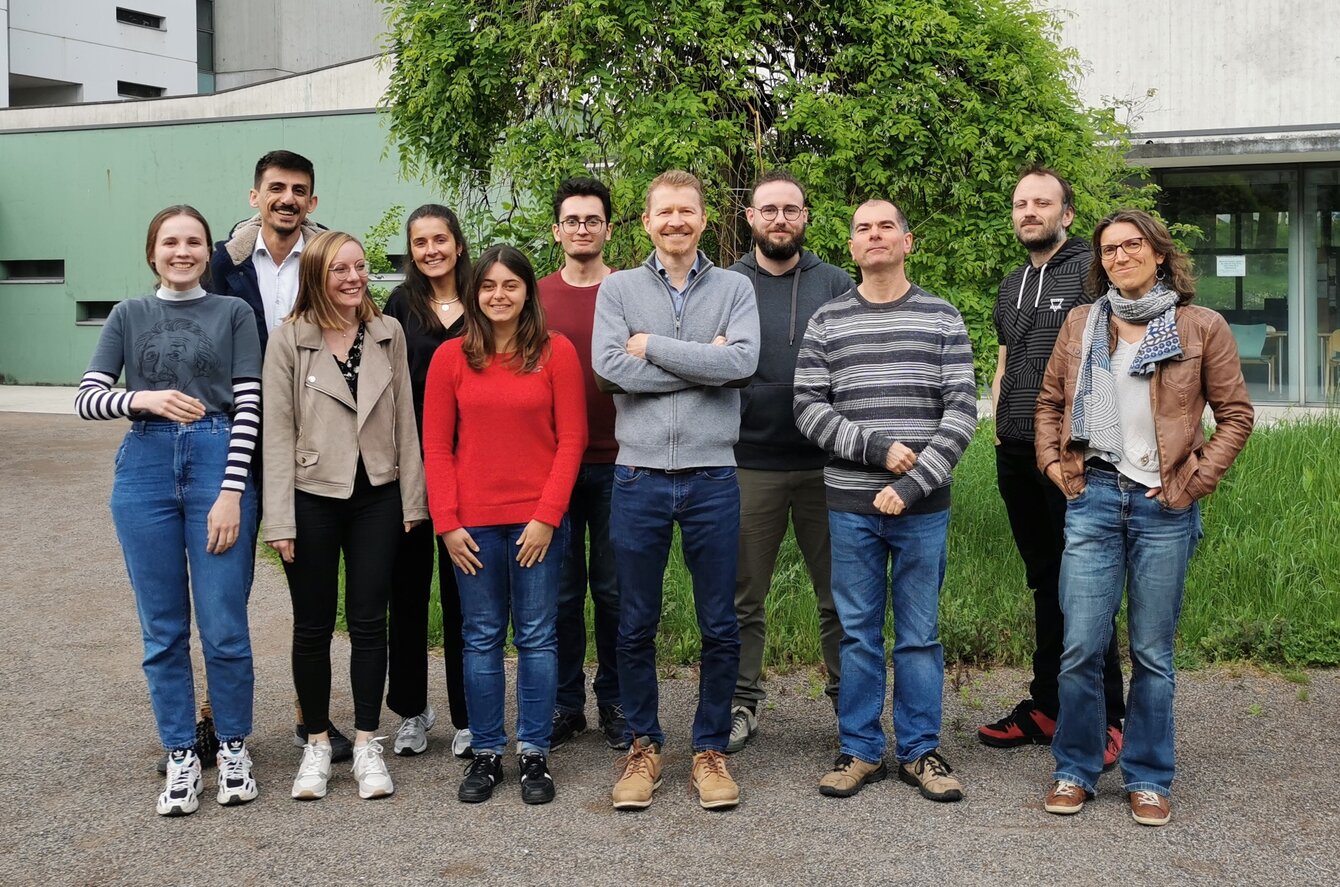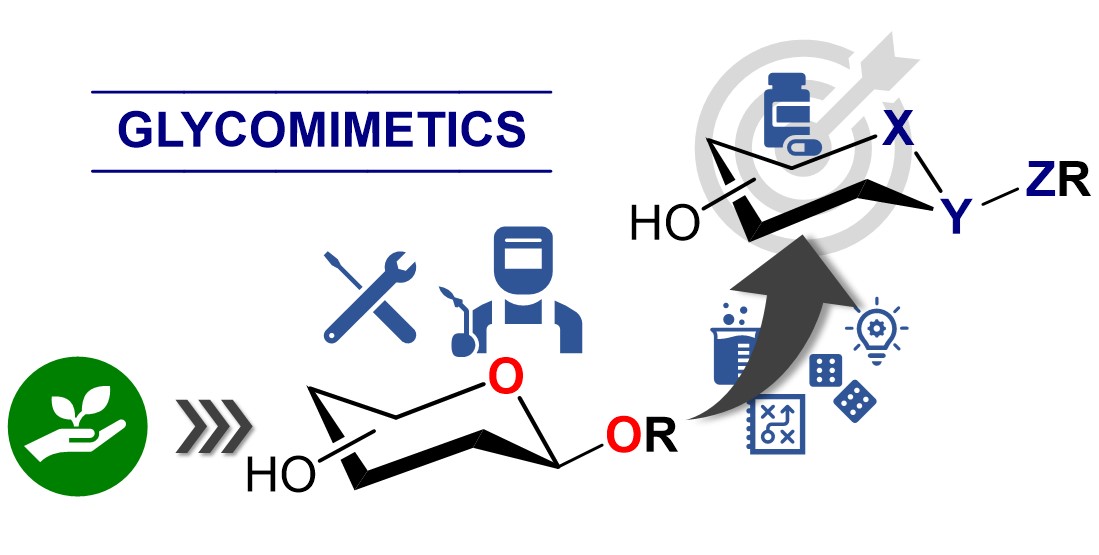Team website http://ecpm2.unistra.fr/umr7509/labo_philcompain
X (Twitter): @compaingroup
Vous êtes ici :
Team website http://ecpm2.unistra.fr/umr7509/labo_philcompain
X (Twitter): @compaingroup

Our research projects combine the development of new synthetic methodologies and the design of natural-like heterocycles of biological and therapeutic interest. The overall aim is to develop efficient synthetic access to original glycomimetics in order to accelerate the discovery of potent inhibitors of carbohydrate-processing enzymes. Carbohydrate mimics as structurally modified analogues of sugars offer the opportunity to emulate carbohydrates, a major class of biomolecules that displays the highest structural diversity among natural products enabling a myriad of biological processes. Structural modifications are performed not only to enhance target affinity, but also to improve drug-like properties, such as oral bioavailability or in vivo stability. Beyond their biological interest, glycomimetics are an amazing playground for chemists. Designing new chemical structures that compete with one of the most important classes of biomolecules is indeed a strong driving force for the practitioners of the art and science of organic chemistry. Our recent studies have aimed at exploring unfrequented regions of glycochemical space, while giving the opportunity to address new synthetic challenges. In this context, the three key research areas of SYBIO are:
To access original glycomimetics and analogues of natural products, we develop novel synthetic methodologies based on photocatalysis, catalytic hydrogen atom transfer (HAT), domino reactions, click chemistry or nucleophilic ring-opening.
We have recently synthesized unprecedented constrained glycomimetics of biological interest. As organic chemists, we are attracted by the number of synthetic challenges that such structures represent with several contiguous asymmetric centers, small cycles and a high density of functional groups. We are also focusing our efforts on the total synthesis of natural products bearing original carbohydrate-fused polycyclic motifs such as nogalamycin, an anthracycline antitumor agent.
Recent studies in SYBIO team concerning multivalent effect in glycosidase inhibition have showed that multimeric systems bearing several copies of an inhibitor are up to 200,000-fold more potent than the corresponding monovalent model. Further studies are currently in progress to understand this effect and push its limits. New projects are also directed toward the rational design of targeted covalent inhibitors of glycosidases, an important class of carbohydrate-processing enzymes of therapeutic interest. The inhibitor candidates will be first tested in house against pure commercial enzymes to establish their inhibition mode and rate of inactivation.
Recent overview of our work: Synlett 2023, in press (DOI: 10.1055/s-0042-1751449)
Representative publications: Angew. Chem. Int. Ed. 2018, 57, 8002; Org. Lett.2019, 21, 7262; Chem. Rec. 2020, 20, 10; J. Org. Chem.2022, 87, 13178; Eur. J. Org. Chem.2023, 26, e202201311.
